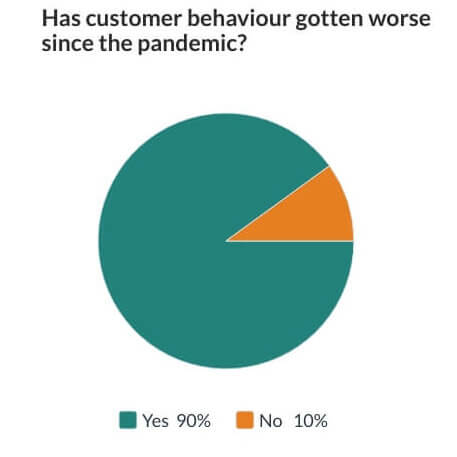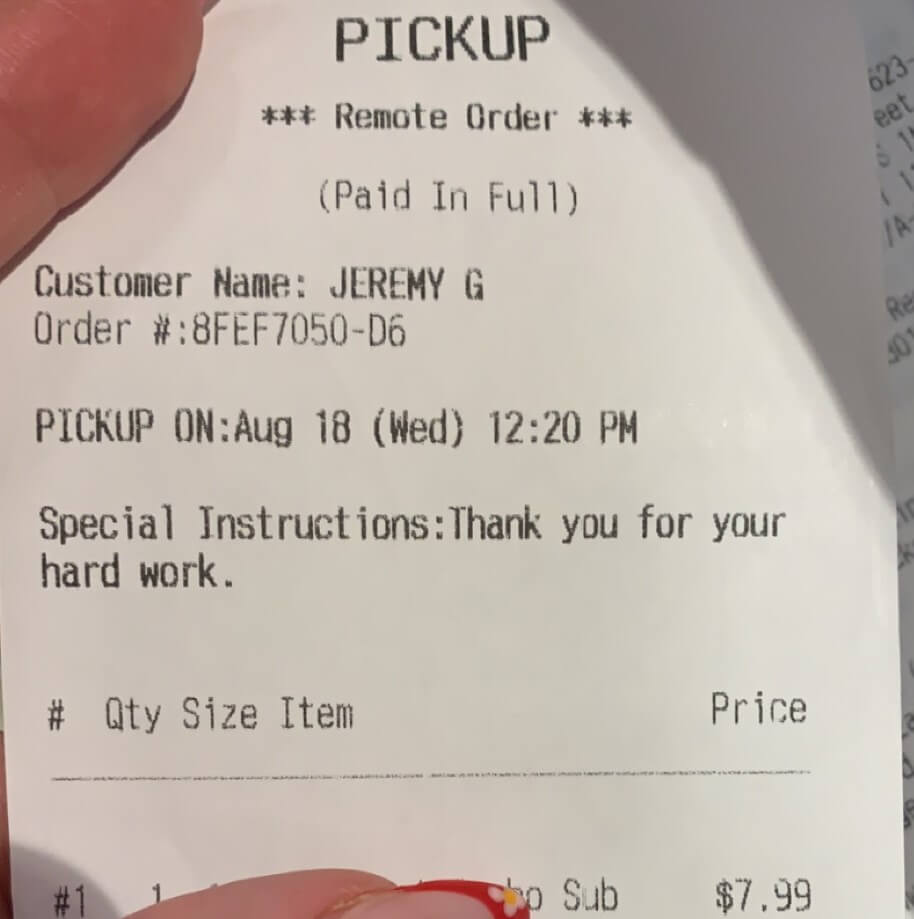If I had a loonie for every time I’ve heard the phrase “the customer is always right,” during my six years of customer service, I wouldn’t have to work anymore. As much as that phrase is repeated, it doesn’t become any closer to being a true statement.

There have always been some customers who are in the wrong and forget to leave their sour attitudes at the door, but since the pandemic, customers have gotten even more combative and self-righteous.
It’s understandable that the pandemic has made people grumpier than before. But why take it out on the people serving you?
Lightspeed, a company that helps businesses with their Point of Sale (POS) systems, surveyed restaurant workers and operators. Seventy-two per cent of operators said behaviour has gotten worse since the pandemic, and 62 per cent of employees said customers have become even more demanding than before.
Some employees have become so fed up with the foul treatment from customers over the pandemic, that they’ve quit.
A poll by UC Berkely Food Labor Research Center found that out of 2,800 food service workers, 39 per cent left their jobs “due to concerns of hostility and harassment from customers.” Eighty per cent of the surveyed food service workers had witnessed this behaviour come from pandemic-related protocols.
Customers frustrated about pandemic-related protocols – social distancing, wearing a mask, etc. – has become something to expect during every shift.
Holly Barnes, a former Conestoga student now attending Niagara College, has experienced this firsthand at her retail job.
“I had to ask a guy to wear a mask, and he threatened to sue me,” she said. “Then, he threw the mask [we provided him with] at me.”
While throwing a mask potentially covered in COVID-19 cooties may sound a bit outlandish, it’s not the worst others have seen.
Jessica Mays, a recently graduated Conestoga student, worked at a restaurant for five months before quitting. Mays witnessed hostesses get screamed at by customers because they forgot their vaccine passports to dine in, or because reduced capacity meant there were no seats.
“I once had a hostess have a panic attack and ball her eyes out on my shoulder,” Mays said.
But it wasn’t long before Mays found herself in worse situations.
A customer decided to seat himself on the patio, without checking in with a hostess; so, none of the staff were assigned to serve him.
“After nearly half an hour, he stormed inside and grabbed my arm,” she said. “He began to scream at us for how stupid we all were since we ‘ignored’ him.”
Even at my fast-food job, we’ve had our own series of misfortunate events with customers during the pandemic:
- The customer who came two minutes past closing time on Christmas Eve and was mad my co-workers did not want to stay later to serve her.
- The customer who yelled at me for being a “government pawn” for telling him our dining room was closed.
- The customer who has left complaints about our store four times, yet continues to come back. During her last visit, she falsely accused my manager of throwing cheese at her.
If only those were the sole examples I could share.
Thankfully though, not every customer is like this.
During a brutally busy shift this summer, an online order came through. As it printed, I noticed something the customer put in the special instructions section.

Since it’s not uncommon to hear stories about difficult customers being a “Karen” lately, next time you’re shopping or dining somewhere, consider pulling a “Jeremy” on an employee. It might just make their day.

